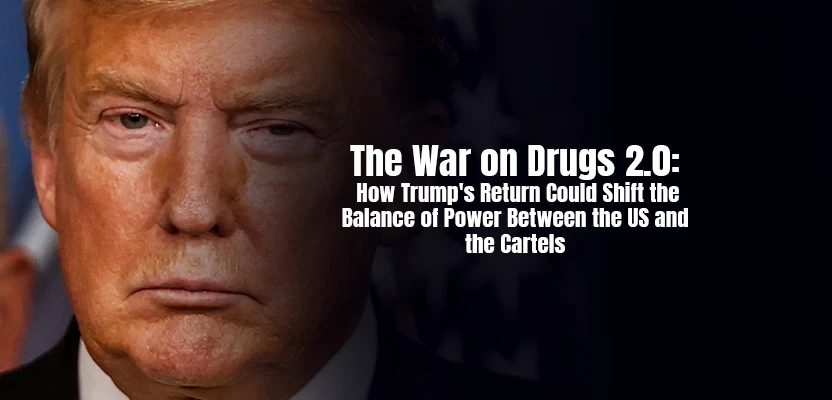
An Analysis of the Potential Impact of Donald Trump on the Fight Against International Drug Cartels and the Spread of Narcotics on the Dark Web.
If Donald Trump returns to the White House in 2024, his administration is expected to resume a hard-line approach in the "war on drugs." During his previous presidency, Trump repeatedly stated his intention to take radical measures to curb international drug trafficking, which generated a mixed reaction.
According to the United Nations Office on Drugs and Crime (UNODC), the global drug market is estimated to be worth $300-$650 billion per year [1]. Despite years of law enforcement efforts, the influence of major cartels, especially Mexican ones, remains colossal. In 2019 alone, a record 1.4 tons of heroin and 1.7 tons of cocaine were seized at the US-Mexico border .
If Trump is elected, one can expect tighter border control, increased funding for relevant agencies, and harsher penalties for drug traffickers. Moreover, his administration is likely to intensify pressure on dark web markets, where cartels actively use private messaging apps and the deep web to distribute illicit substances. According to the European Monitoring Centre for Drugs and Drug Addiction, around 45% of all drug transactions on the dark web originate from the US .
However, critics argue that such a militarized approach to the war on drugs may lead to an increase in violence and fail to solve the problem in the long term. Instead, they believe a comprehensive strategy is needed, including measures to reduce demand, legalize and regulate the use of certain substances, and coordinated international efforts.
Thus, Trump's return to the White House could mark a new chapter in the "war on drugs," but the effectiveness and long-term consequences of such a policy remain the subject of active debate within the expert community.



Comments 0